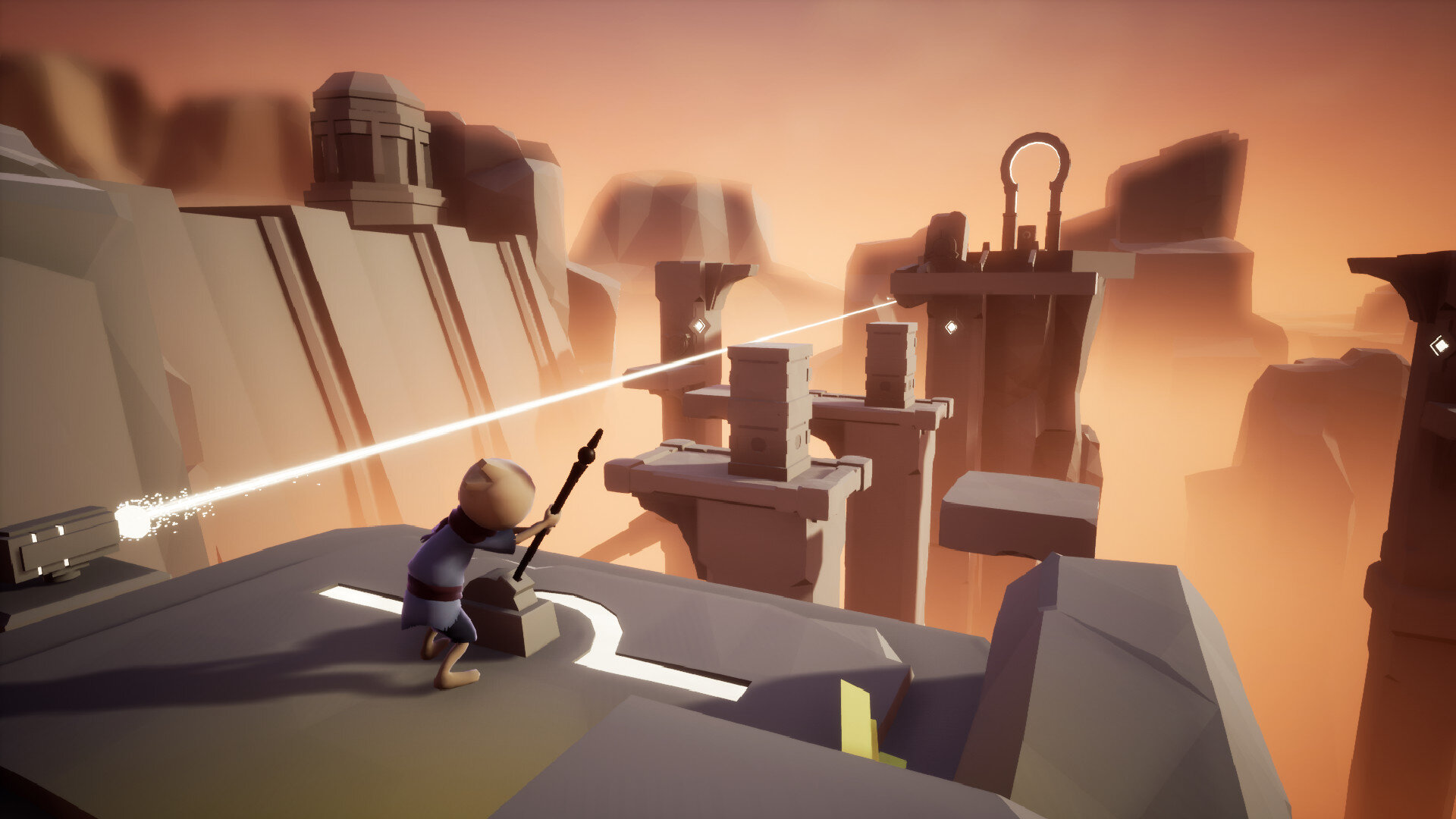Tom Towers reviews A Juggler’s Tale, another in a long line of cinematic platformers by indie devs, but perhaps (?) the first written in rhyme. Tom’s review, regrettably, is not written in rhyme.
Nevertheless, you can check it out here.

Tom Towers reviews A Juggler’s Tale, another in a long line of cinematic platformers by indie devs, but perhaps (?) the first written in rhyme. Tom’s review, regrettably, is not written in rhyme.
Nevertheless, you can check it out here.

Made by the Melburnian delevoper duo Melting Parrot, Dap is an aesthetic marvel; steeped (perhaps inadvertently) in the atmosphere of Melbourne’s waterways, as glimpsed through a looking-glass. As rich in narrative and gameplay as it is in aesthetic and setting, Dap is well worth checking out.
Read Tom’s review here.
Australia won a gold medal in skateboarding at the Olympics. It might have been controversial if it were a different sport. Here is a very schizophrenically edited video recounting the dramatic events.
And here is Tom Towers’ review of The Ramp: Tom Tower's’ review of The Ramp.

It’s all about the Chinese TRON Knees this episode. Tom and Phil discuss Art of Rally, which just launched for consoles, we wax nostalgic about our favourite arcade racing games and then discuss Hot Shot Racing, Jason Schreier's new book Press Reset, Vegan Fish, Giantbomb, Omno, The Last Stand and The Ramp on Australia's longest running video game podcast.
Oh and Tom also made me watch the above. Thanks for Listening.
Phil Fogg

DreamWorks wasn’t a diss! I’m surprised I didn’t take more screenshots, but I did take two. Can you guess which ones without visiting Steam?
To identify who screenshotted what (and read the review itself), click here.
Tom and Phil discuss Valve's Steamdeck, Nintendo's Switch OLED, Sky Children of Light on Switch, The First Tree on PC, Before I Forget on PC, Yakuza: Like a Dragon and Not Tonight for Switch and PC. Thanks for listening.

Ynglet is a curious game. A completely original take on 2D platforming, and a mysterious aesthetic and narrative, melding real world settings, television media, aquatic and plant life with algorithmic music!
Spoiler alert: it is well worth playing. But if you need more convincing, read Tom’s review here.

For what Omno lacks (or seems to lack, so far) in thematic content compared to the games its aesthetic immediately brings to mind (the likes of Journey and Ico), it makes up for in the hand-crafted passion which it exudes from every pixel—Jonas Menke began work on Omno as a hobby after working as an animator, and the free expression that this allowed shows.
The demo, though short, immediately establishes three equally harmonious aesthetics, two of them flowing in and out of each other seamlessly: lush vegetation into ancient ruins and ancient ruins back into lush vegetation; followed by a cold cut to a desert.

Although the full game promises to combine puzzle-solving with platforming, the demo (which is available on Steam) consists of collecting energy, then some light platforming; though with an interesting mechanical twist: after jumping, Omno can dash forwards with his spear mid-air, acting a little like a horizontal double-jump. It’s very satisfying zipping over to a hard to reach ledge and grabbing hold of it. Indeed, even the basic movement of Omno is itself satisfying; the animation expressive and fluid. Equally satisfying is teleporting between two points in space, Omno’s body being distorted as he is sucked between dimensions .
All this makes for a tremendously promising game, personal expression transforming indie clichés into something intriguing.
Fingers crossed it lives up to its potential!

Playing Cyberpunk 2077 and Cloudpunk back to back made for a fascinating experience. The former treats cyberpunk as material for pastiche, and the latter as genre conventions to imitate in service of a point-and-click adventure game-style comedy drama in the German tradition; yet both end up tackling the individual’s response to an atomsed society in ways which authentically build on the work of the cyberpunk authors and auters which inspired them. Reducing said movement to pastiche and genre conventions is also very much in line with the original movement of cyberpunk itself, as the original cyberpunks mined noir and counter culture material in an equally reductive way.
But Tom’s review is just about City of Ghosts, not Cyberpunk 2077. Or is it? In any case, check it out here.
Building on the ground Papers, Please broke, Mind Scanners has the potential to be special.
Its aesthetic is a mind-bending blend of two opposing forces, Freudian psychology and Soviet bureaucracy. (So it’s actually a Jungian duality, if anything!) This would be intriguing enough, but the lo-fi aesthetic is suitably dismal yet engrossing, and the day-to-day routine of the work simulation is like a lava bath for the brain, as you try to juggle pleasing both the id and the ego of the General Secretary and your own sense of justice.
For Tom and Phil’s impressions of the Mind Scanners beta, click here.